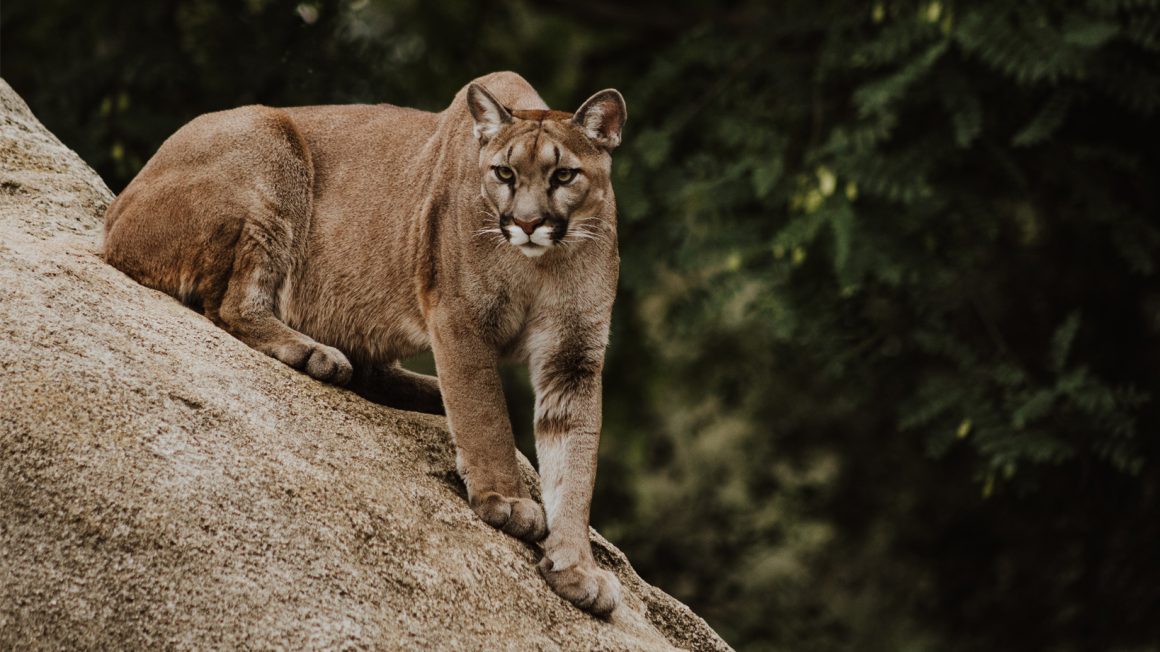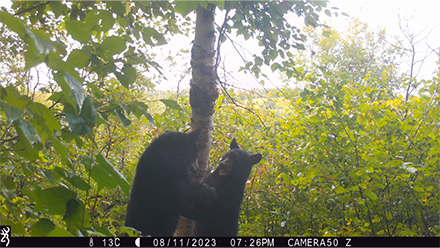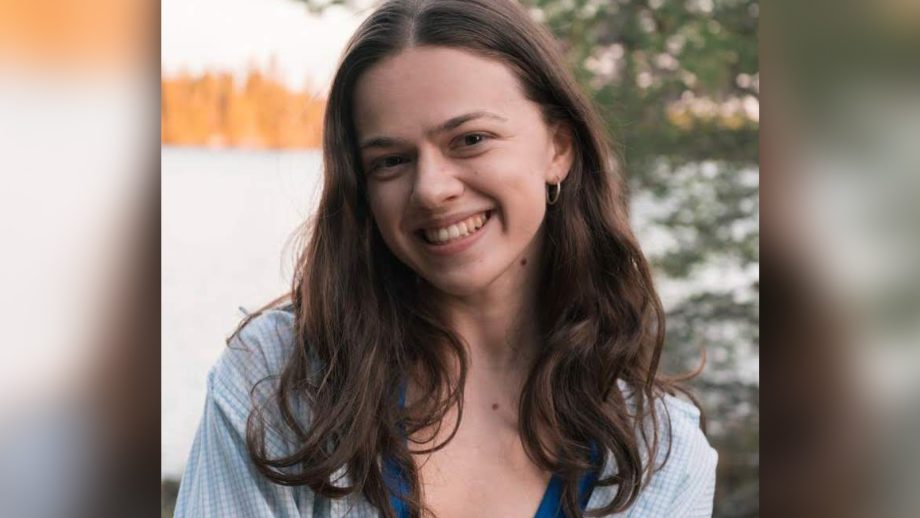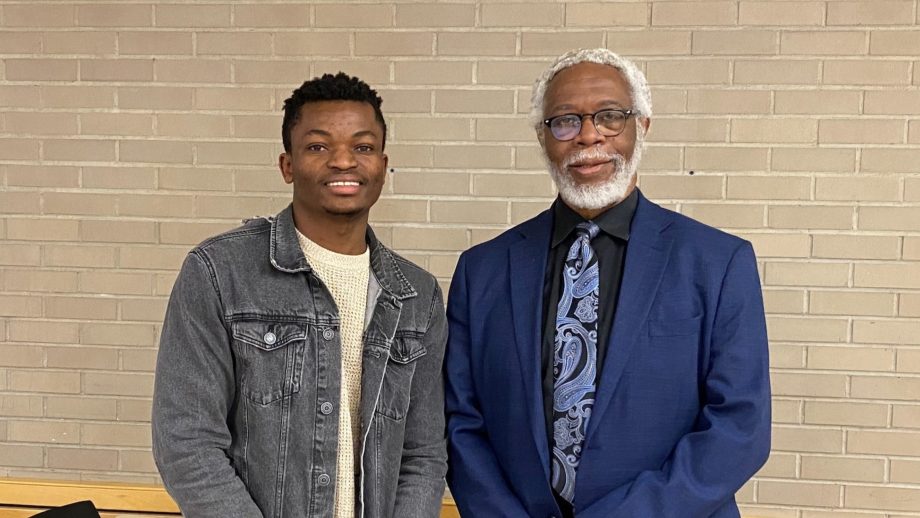A group of University of Winnipeg biology students are part of The Wildlife Society, an international network of leaders in wildlife science, management, and conservation who are dedicated to excellence in wildlife stewardship—and spring is a great time to sign up!
The Wildlife Society at UWinnipeg (TWS UW) was created a decade ago with biologist Dr. Susan Lingle as the faculty lead, and driven by students and their passion for research, wildlife stewardship, and conservation. Jadyn Piatt and Andrij Ziobrowski both are TWS UW members obtaining a four-year Bachelor of Science degree in biology.
If the student has an interest in wildlife or the environment, we try our best to provide connections and opportunities.
Jadyn Piatt
“The goal is to give students hands-on experience with fieldwork that they can apply to their CVs and to give them the opportunity to take part in interesting and varied wildlife-related activities,” said Ziobrowski.
An interesting example of this fieldwork is the Cougar-Cat-Cam (C3) project in collaboration with retired provincial biologist Bill Watkins, who also teaches at UWinnipeg. Using trail cameras set up by the TWS UW team, they monitor cougar sightings. Cougars have only recently returned to Manitoba after an absence of several decades. Watkins has been studying the slow cougar re-emergence for two decades during his work with the Manitoba Government’s Fish and Wildlife Branch.
Ziobrowski explains the TWS UW team places cameras outside of Riding Mountain National Park and around the Sandy Lake area, where there have been possible sightings of cougars where the terrain is ideal.
Dr. Lingle notes confirmed cougar sightings are still extremely rare in the province, but appear to be becoming somewhat more frequent, which is why Watkins enlisted the students for this project.
“The trail cam project is also excellent to document and monitor other species on the landscape, including black bears and mule deer, which are uncommon in Manitoba,” shared Dr. Lingle.
This participation with TWS offers resources and builds a skill set and tool kit that creates opportunities in the wildlife profession, who aim to advance wildlife science, management and conservation.
Earlier this month, eight students from TWS UW attended the Manitoba Wildlife Society annual meeting in Winnipeg, and two graduate students made presentations. The participants were enthusiastic about the event that provided them with a variety of opportunities to learn about ecology and wildlife and meet people working in these fields within Manitoba and across Canada.
TWS UW also brings potential employers to networking events that help strengthen connections to professional and non-profit organizations that could hire the students. The networking event that was held last fall included Assiniboine Park Zoo, Ducks Unlimited, Nature Conservancy of Canada, Manitoba Museum, the Manitoba Métis Federation, and Parks Canada. Representatives from each organization highlighted employment prospects suitable for students pursuing a biology or environmental science degree.
“I enjoy organizing and taking part in the workshops and networking events,” said Piatt. “It feels rewarding when something that you have been planning for as a team comes together and every participant seems to enjoy themselves.”
Piatt and Ziobrowski suggest TWS UW is a great way to connect with colleagues who share similar interests that can help build skills and make important professional connections.
“If the student has an interest in wildlife or the environment, we try our best to provide connections and opportunities to learn about these topics in a hands-on and fun environment that can lead to employment,” said Piatt.
Piatt and Ziobrowski have participated in several other projects, including a fish aging workshop, a tour through the Brokenhead Wetland Interpretive Trail, and volunteer goose-banding work.
TWS UW invites any students interested in biology and this type of field work to join. Visit the Wildlife Society UWinnipeg website or Telegram GroupChat for more information.






